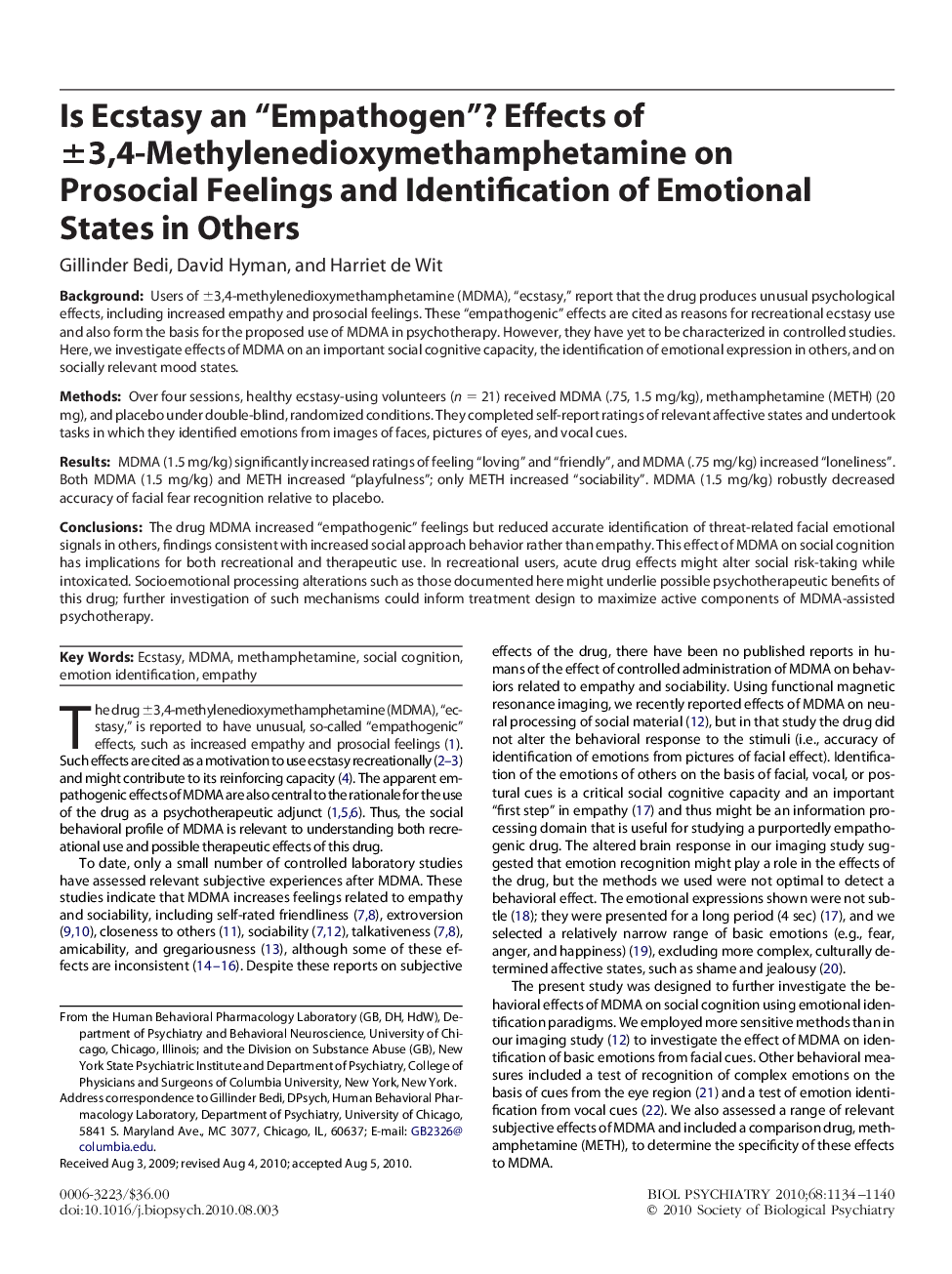| Article ID | Journal | Published Year | Pages | File Type |
|---|---|---|---|---|
| 4178483 | Biological Psychiatry | 2010 | 7 Pages |
BackgroundUsers of ±3,4-methylenedioxymethamphetamine (MDMA), “ecstasy,” report that the drug produces unusual psychological effects, including increased empathy and prosocial feelings. These “empathogenic” effects are cited as reasons for recreational ecstasy use and also form the basis for the proposed use of MDMA in psychotherapy. However, they have yet to be characterized in controlled studies. Here, we investigate effects of MDMA on an important social cognitive capacity, the identification of emotional expression in others, and on socially relevant mood states.MethodsOver four sessions, healthy ecstasy-using volunteers (n = 21) received MDMA (.75, 1.5 mg/kg), methamphetamine (METH) (20 mg), and placebo under double-blind, randomized conditions. They completed self-report ratings of relevant affective states and undertook tasks in which they identified emotions from images of faces, pictures of eyes, and vocal cues.ResultsMDMA (1.5 mg/kg) significantly increased ratings of feeling “loving” and “friendly”, and MDMA (.75 mg/kg) increased “loneliness”. Both MDMA (1.5 mg/kg) and METH increased “playfulness”; only METH increased “sociability”. MDMA (1.5 mg/kg) robustly decreased accuracy of facial fear recognition relative to placebo.ConclusionsThe drug MDMA increased “empathogenic” feelings but reduced accurate identification of threat-related facial emotional signals in others, findings consistent with increased social approach behavior rather than empathy. This effect of MDMA on social cognition has implications for both recreational and therapeutic use. In recreational users, acute drug effects might alter social risk-taking while intoxicated. Socioemotional processing alterations such as those documented here might underlie possible psychotherapeutic benefits of this drug; further investigation of such mechanisms could inform treatment design to maximize active components of MDMA-assisted psychotherapy.
